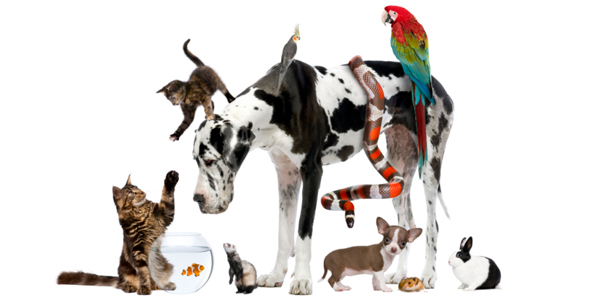
How to choose the right pet for a family with special needs
Did you know that the presence of guinea pigs in a room can increase social behaviors in children with autism?
Researchers at the University of Queensland in Australia recently published a study demonstrating a significant measurable increase in talking, smiling, laughing, looking at faces, making tactile contact and social approaches when children with autism and their peers played with 2 guinea pigs in a classroom.
 I’ve already informally duplicated the study in my home by inviting my son’s friends to come over and play with our pet guinea pigs. What always amazes me is that the conversation immediately turns to questions of empathy: “What are the guinea pigs thinking? Why is he doing that? What does he want? How do I take care of him?”
I’ve already informally duplicated the study in my home by inviting my son’s friends to come over and play with our pet guinea pigs. What always amazes me is that the conversation immediately turns to questions of empathy: “What are the guinea pigs thinking? Why is he doing that? What does he want? How do I take care of him?”
Sooner or later, most families of children with special needs begin to think about adopting a pet for therapeutic reasons. Of course, there are advantages and disadvantages to every type of pet. Sometimes a pet is not logistically possible, but any pet has the potential to enrich family life.
Here are ten of the most popular pets for beginners, along with the pros and cons for each one. If your family wants to adopt any type of pet, large or small, consider a rescue organization such as those listed on petfinder.com.
Dog
Advantages:
- Very social and trainable, and deeply attached to their human family.
- Different breeds of dogs can serve different needs as well - for example, a Basenji is a “barkless” dog breed and an Italian Greyhound is a small, quiet companion.
- Encourages more exercise for the whole family.
- Many organizations such as Disability Assistance Dogs and Autism Service Dogs of America can match families with a trained service dog - but a service dog is a working dog, not a pet.
Disadvantages:
- Expensive care.
- Large time commitment.
- Many people are allergic to dog fur and dander.
- Most dog food contains food allergens such as peanuts, eggs and dairy, so individuals with food allergies will have a reaction from being licked by a dog, or even from touching dog fur - because the fur is coated with saliva and food residue.
- Most dogs do not like to be disturbed while eating and may interpret young children’s movements as threatening, so give some consideration to the behavior patterns in your home before adopting.
Cat
Advantages:
- Cats tend to choose their families: 49 percent of pet cats are acquired as strays.
- Cats become attached to their families and enjoy companionship.
- Quiet.
- Relatively easy to clean up after them.
Disadvantages:
- Cats spend about 70% of the day sleeping and 15% of the day grooming - they are not nearly as playful as dogs.
- Almost all cat food is made with peanuts, so cat fur is coated with saliva and peanut residue - cats can be very dangerous for people with peanut allergies.
- Cat dander is another major allergen.
Rabbit
Advantages:
- Soothing to watch and pet.
- Easy to clean up after them.
- Live up to 10 years.
- Rabbits are social and prefer to have another rabbit as a companion.
- Rabbits tend to be relatively low maintenance animals, so their care is not too time-consuming.
Disadvantages:
- Many people are allergic to rabbits.
- Rabbits are not easily trained, but with time can be trained to use a litterbox.
- They chew on everything.
- Do not enjoy snuggling or being picked up.
Guinea Pig
Advantages:
- Guinea pigs are social and are much happier living with another guinea pig. Ask at the rescue shelter for a bonded pair.
- Furry and snuggly.
- Lower time commitment compared to cats or dogs.
- Communicative - guinea pigs squeak and make other sounds to express their feelings.
Disadvantages:
- Daily cage cleaning.
- Nail trimming is necessary and very challenging.
- Sometimes that squeaking gets annoying.
- Guinea pigs need space to move around - they should not be confined to the cage all day.
Hamster
Advantages:
- Super fun to watch!
- Cage only needs to be cleaned once every two weeks.
- Inexpensive, easy care.
Disadvantages:
- Not as social as guinea pigs.
- May bite.
- Short life span -usually about 2 years.
- Nocturnal - will move around and make noise at night.
Rat
Advantages:
- Even more social and engaging than dogs. I almost got one for my son because the rat drew out and challenged all of my son's social skills in less than 3 minutes.
- Affectionate and deeply attached to people.
- Fun loving, curious and playful. Get two rats together and they will work very hard to entertain you.
- Intelligent and trainable.
Disadvantages:
- Many people have a serious fear of rats.
- Rats love to stay with their owner for several hours per day, riding around on the person's shoulder. They require a large commitment of time and attention or else they become depressed and ill.
- Rat droppings around the house.
- 2 year life span.
Parakeet (Budgie)
Advantages:
- Bright, beautiful and social - much happier in pairs.
- Trainable.
- Great for people who live in a smaller home.
Disadvantages:
- The noise is a deal-breaker for those with difficulties with sensory integration.
- High upfront cost of cage and equipment.
- Daily cage cleaning.
- No snuggling, and biting is a risk.
- Bird droppings around the house if allowed to fly freely.
Leopard Gecko
Advantages:
- Less expensive and easier to care for than other reptiles.
- Over time they become used to handling by owner.
- Remains small - maximum size is 8 inches long.
- Good for small living space.
- Ideal for people with fur allergies.
- Lives about 20 years.
- Quiet.
- Clean - uses one corner of cage as a bathroom.
Disadvantages:
- May carry salmonella bacteria - take precautions.
- Sensitive to temperature changes.
- High upfront cost for tank, heat lamp, materials to create a home environment, etc.
- No snuggling.
Slider Turtle
Advantages:
- No allergies.
- Low veterinary expenses.
- Quiet.
- Inexpensive to feed.
- Lives for about 20 years - some Sliders live up to 70 years.
Disadvantages:
- Illegal to own Sliders in some states.
- May carry salmonella bacteria - take precautions.
- Frequent tank cleaning.
- Not snuggly.
- Unique "turtle" odors.
- High upfront cost for wet/dry habitat, tank, heat lamp, etc.
- Grows up to 10-11 inches in length and will need a larger tank.
Fish
Advantages:
- Beautiful colors.
- No allergies.
- Instantly calming to watch - perfect for those struggling with anxiety or panic attacks.
- Great for small living space.
Disadvantages:
- Tank cleaning/maintenance.
- Short life span.
- High start-up cost and learning curve.
- May be unsafe around child with hyperactivity or destructive behaviors.
- Not snuggly.
What do you love most about your pet? How has your pet helped your family? Or is your favorite pet not on this list? Please share in the comments below!



